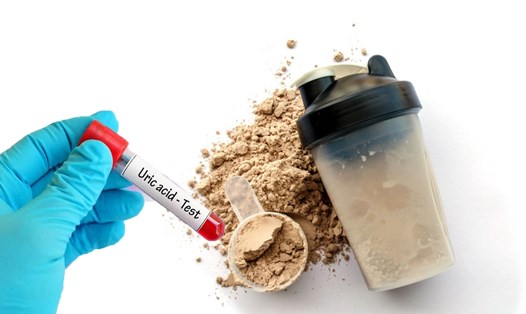Three popular types of whey on the market
According to Ms. Pratiksha Kadam, chief nutritionist at Kokilaben Dhirubhai Ambani Hospital (Navi Mumbai), whey protein is increasingly popular in diet and exercise.
However, not all types of whey are the same and choosing the right product will depend on personal needs to bring optimal efficiency.
Whey protein is a complete source of protein, containing nine essential amino acids, including leucine, which is an important factor in building and recovering muscles, according to the Indian Express.
Whey Protein Concentrate (WPC): contains about 7080% protein, along with a small amount of lactose, fat and minerals.
This is an economical choice, suitable for beginners, but can cause indigestion for people who are sensitive to lactose.
Whey Protein Isolate (WPI): contains more than 90% protein, almost eliminating lactose and fat. This type is easy to digest, supports weight loss and is suitable for people with lactose intolerance, but the price is higher.
Whey Protein Hydrolysate (WPH): has been hydrolyed into small peptides, absorbed quickly. This type is often used in medical recovery or for athletes who need to regenerate muscle quickly, but the taste is slightly bitter and expensive.
Choose according to needs
Weight loss: choose Whey Isolate because of its high protein content, low fat and carbohydrates.
Lactose intolerance: Whey Isolate or Hydrolysate are safe options.
People prone to acne: should monitor skin reactions or consider using plant-based proteins.
Is it safe to use every day?
According to expert Kadam, most healthy people can use whey protein regularly to support muscle growth, weight control and recovery. However, it should be noted:
- People who are lactose sensitive may have digestive problems with WPC.
- People prone to acne should be cautious and monitor their skin condition.
- People with kidney disease need to consult a doctor before taking a lot of protein.
- Always choose reputable, quality-versed products to avoid the risk of mixed ingredients.
The important thing is to clearly understand the body, choose the right type and the right dosage. Any nutrient, if consumed excessively, can be harmful, Ms. Kadam emphasized.










